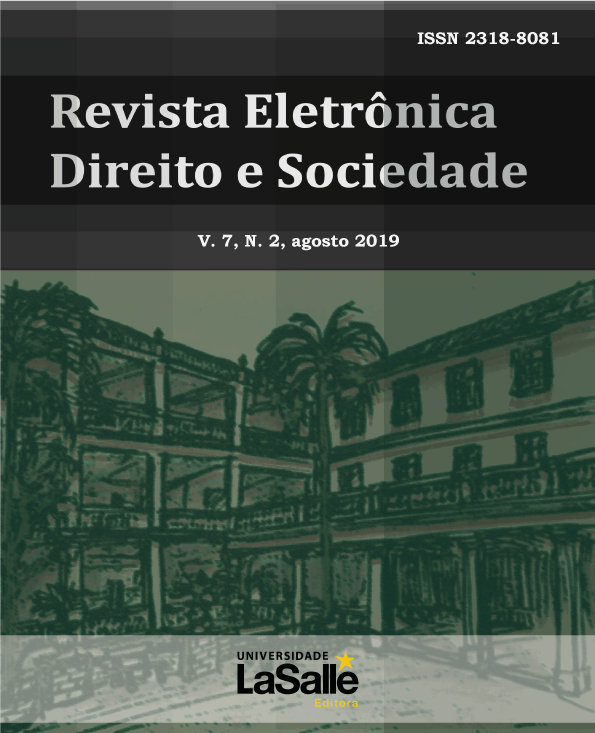The tolerant and the tolerated: the limitations of the concept of religious tolerance
DOI:
https://doi.org/10.18316/redes.v7i2.3818Keywords:
Liberalism, Religion, Religious Tolerance.Abstract
Nowadays, religious tolerance is often pointed as the panacea of religious conflicts. As soon as a violent act – or even a terrorist act – that happened due to religious intolerance is reported, religious tolerance is pointed out as a solution. It is often seen as the most appropriate resort not only in academic circles, but also by the large and small media as well as by much of the population. But is religious tolerance truly the solution to such problems? What does this term actually mean? What were the causes and what was the historical moment of its arising? The present article proposes to study the context of the appearance of religious tolerance, it’s meaning and what this tolerance concretely represented. The purpose is to analyze how this tolerance has manifested itself, based on a qualitative bibliographical and documentary research, in order to ascertain whether it is able to guarantee equal conditions for free religious exercise - or to exercise no religion at all. This research reached the conclusion that tolerance does not presuppose equal respect for all religious conceptions (or for the absence of religion), often even allowing the granting of unequal and inferior treatment to religious minorities. This statement is exemplified by the analysis of the meaning of the judgment of the ADI 4439, which allowed confessional teaching in Brazilian public schools.
Published
Issue
Section
License
Authors who submit their manuscripts for publication in the “REDES” Magazine agree to the following terms:
The authors claim to be aware that they retain copyright by giving “REDES” the right to publish.
The authors declare to be aware that the work submitted will be licensed under the Creative Commons Non-Commercial Attribution License which allows article sharing with acknowledgment of authorship and publication in this journal.
The authors declare to be aware that by virtue of the articles published in this journal have free public access.
The authors declare, under the penalty of the law, that the text is unpublished and original and that they are aware that plagiarism has been identified, plagiarized authors will be informed - willingly, to take legal action in the civil and criminal sphere - and, plagiarists will have their access to the magazine blocked.
The authors state that - in case of co-authoring - all contributed significantly to the research.
Authors are obliged to provide retractions and (or) corrections of errors in case of detection.
The authors are obliged not to publish the text submitted to “REDES” in another electronic journal (or not).
The Electronic Journal Law and Society - REDES - is licensed under a Creative Commons License. Attribution-NonCommercial 4.0 International.Based on work available at "http://revistas.unilasalle.edu.br/index.php/redes/about/submissions#copyrightNotice".
Permissions in addition to those granted under this license may be available at http://creativecommons.org/.

